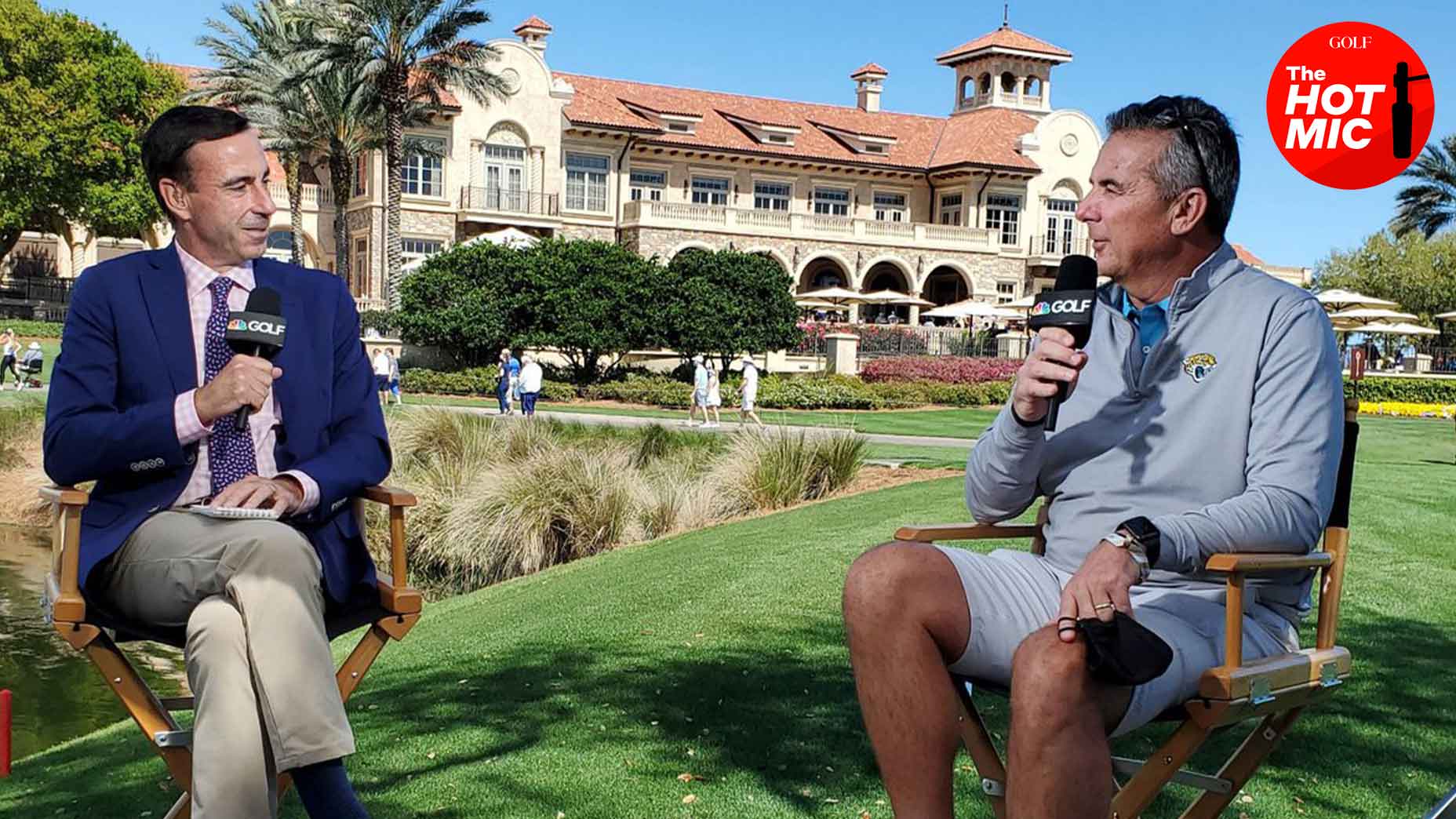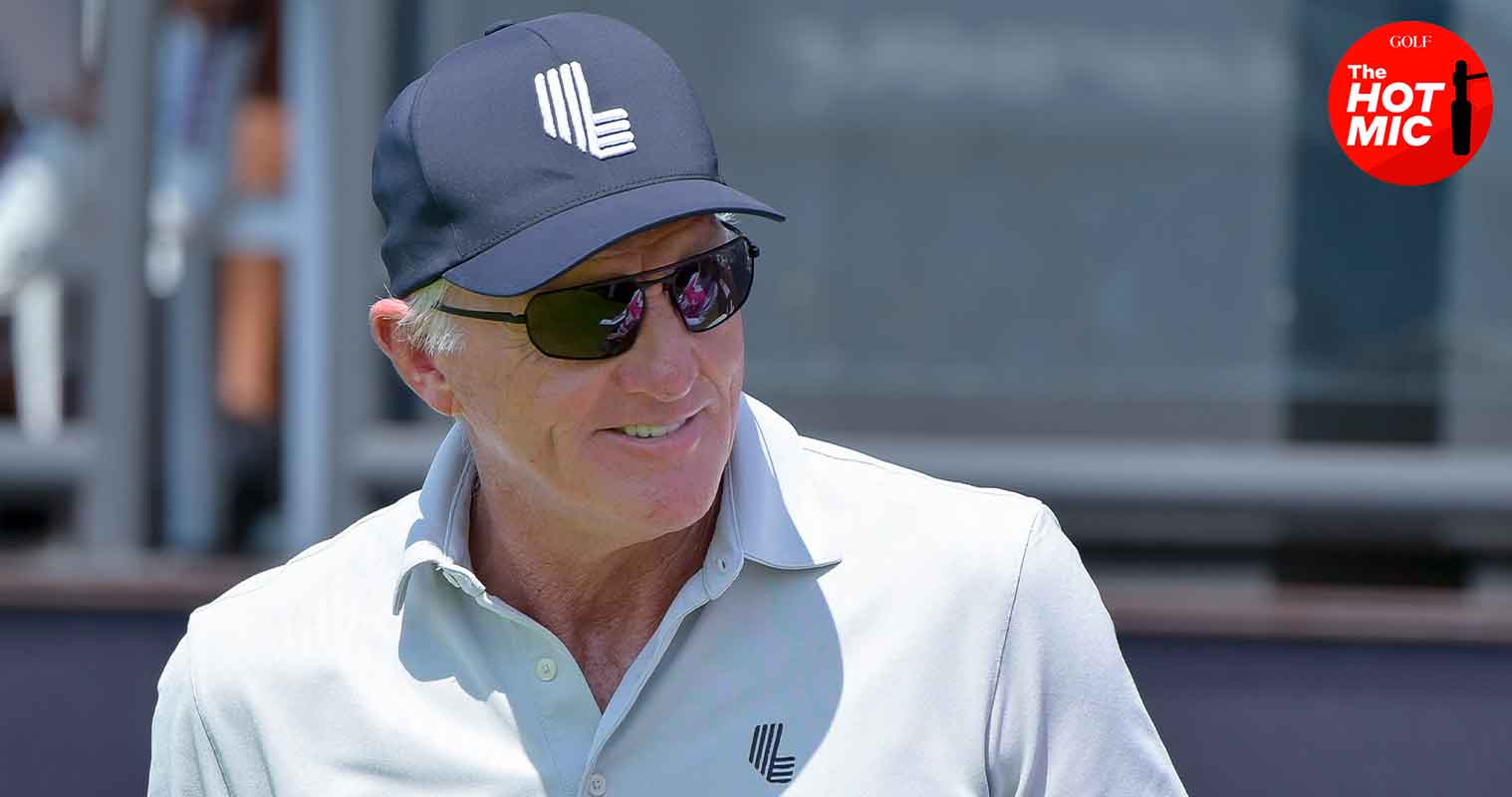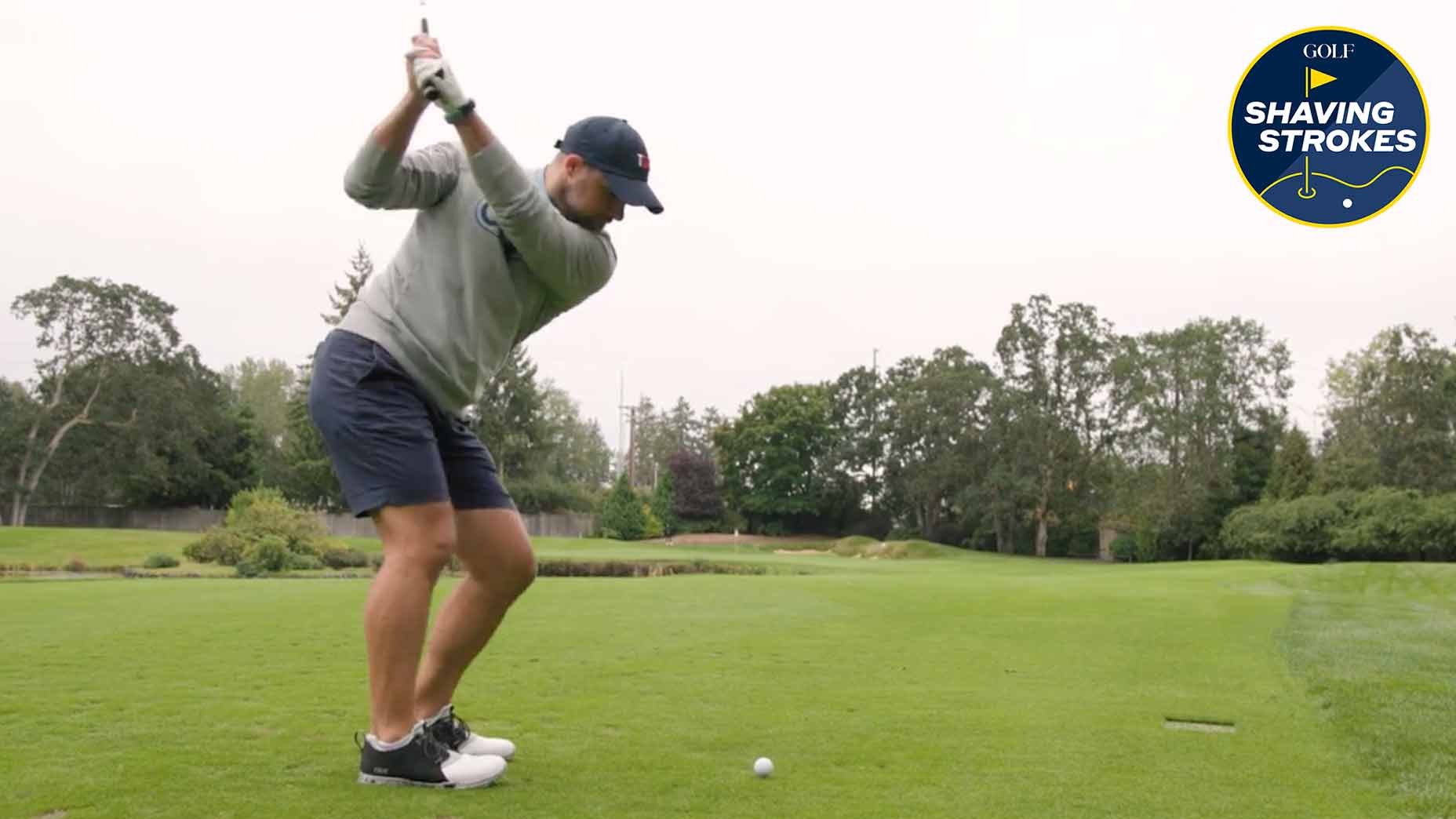
Steve Burkowski will be among the Golf Channel voices working Friday’s Peacock CBB coverage.
Steve Burkowski/X
Steve Burkowski remembers fondly the last time he was asked to care about college basketball with any regularity.
It was three decades ago, and Burkowski was a prospector on the brink of the sports media world’s latest gold rush: talk radio. The late ’90s were boom times for sports talk, particularly after the gobs of success heaped upon New York’s Mike and the Mad Dog. Suddenly, cities all across the country were scrambling to create their own platforms for sports shock-jocks, and looking for voices like Burkowski — a smooth-talking recent University of Florida graduate — to fill the air.
It didn’t take long until Sports Radio 1400, a station in Columbia, S.C., came calling. They had a hosting job available for Burkowski, but it came with a string attached: the station also owned the audio rights to the South Carolina Gamecocks women’s basketball team, and they needed a play-by-play broadcaster. Burkowski could have the sports talk job, so long as he’d be willing to pick up the Gamecocks job, too.
“My wife likes to joke now that I was the voice of a national championship program,” Burkowski says with a chuckle. “But when I was broadcasting their games, I believe they were the worst team in the SEC. We’d go to Knoxville [to play Pat Summitt’s Tennessee Volunteers] and lose by 50.”
Burkowski didn’t know it at the time, but these would be his sports broadcasting golden days — the time before it all became real.
“I was a one-man band. There were no analysts. There was no engineer. I traveled with the equipment, and I had no idea how to do it,” he says. “I used to prerecord an interview to play at halftime just so I could have four-and-a-half minutes to go to the bathroom.”
“I was like, ‘what are we doing here?’ And you know what? I loved every bit of it.”
The years that followed would shape the bulk of Burkowski’s professional career — and pull him away from college basketball. He was hired at Golf Channel in 2000, where he has spent the last 23 years in a variety of roles as a host, reporter, analyst and play-by-play broadcaster.
Today, Burkowski is a golf broadcaster’s golf broadcaster, known for being one of the omnipresent voices across Golf Channel’s suite of programming. But the closer his career has entwined him to golf, the more he’s felt a yearning to return to his roots in basketball — a yearning that brings us to this week.
On Friday night, Burkowski will be one of three Golf Channel broadcasters to contribute to Peacock’s season-opening coverage of Big 10 basketball, joining Noah Eagle, Rich Lerner and Terry Gannon as the play-by-play broadcasters behind the first quadruple-header of the ’24 season.
Eagle, NBC’s voice of Big 10 football, is the only member of the bunch who hasn’t cut his teeth on the Golf Channel circuit, and in Burkowski’s telling, that’s no accident. The Friday night megacast will be the first significant Big 10 basketball broadcast for NBC since absorbing the conference’s media rights at the beginning of the 2023 football season. The new NBC/Big 10 deal opened up the avenue for a host of new roles at the network, and Burkowski was one of a handful of Golf Channel voices who made the pitch to be included in the effort.
“I went old-school,” Burkowski says. “I took my father’s advice to go after the job, go knock on my boss’ door, and I said I’d love to have the opportunity to do more under the NBC Sports umbrella.”
It wasn’t an easy conversation, and particularly not after so many years involved in one sport for NBC, but the old voice of the Gamecocks had history on his side.
“I told them I’d love the chance to do one game, and if you don’t like it, I’ll never bother you again,” he said. “A few days later, an Atlantic 10 women’s basketball game popped up. I took it and the feedback was very positive, and next thing I know, I’m on the Big 10 this year.”
Burkowski will be the voice behind the 8 p.m. Alabama State-Iowa tilt, and will be alongside analyst Tre Demps for the coverage. The prep work alone will take up 8-12 hours of this week, he says — an effort that will involve filling an oversized manilla folder with all manner of information on players, teams, tendencies and coaches. The overwhelming majority of the information on the sheet will never make its way to air, of course, but preparation is the best way to ensure you get invited back.
“I’ll have two or three sheets of notes that I need to consolidate down to two index card-sized spots,” he says. “You need to prepare like all the cameras are gonna go out.”
Burkowski’s Big 10 debut represents one of the more interesting subplots of the upheaval of the sports TV rights deal in the last several years. While the positioning of network behemoths like Disney (owners of ESPN), NBC, CBS, Warner Bros. Discovery and FOX have opened up the possibility for new players like Amazon and Apple in the world of sports rights, they’ve also resulted in one of the most contentious periods for TV rights negotiations in the modern era. At the core of the issue is money: the leagues want a lot of it, and the increased proliferation of the streaming world has left legacy networks pondering if sports rights are still worth it. Those headwinds moved the NHL, SEC and Big 10 from long-time partners, while negotiations for the next round of NBA agreements already have the making of similar changes.
For comparatively smaller-staffed on-air teams like NBC, the result of these shifts has been a surprising amount of turnover. For people like Burkowski, Lerner and Gannon, opportunities to expand their on-air portfolio have never been greater.
“It’s exciting,” Burkowski says. “As much as I love golf, it gets me exhilarated to be able to do more at this point in my career. I like seeing how far I can go out on that ledge and challenge myself.”
This, it seems, is the more human side of Burkowski’s Big 10 debut: the fans won’t be the only ones to learn something new.
“My wife asked me, ‘are you ready for this?’” Burkowski said, letting out a chuckle.
“I guess we’re going to find out, aren’t we?”









